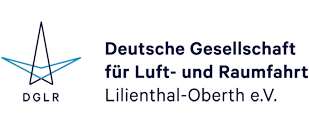DGLR-Publikationsdatenbank - Detailansicht
Autor(en):
V. Kriewall, G. Kolb, M. Wichert, F. Thielecke
Zusammenfassung:
The aviation sector is increasingly considering hydrogen as a potential energy source to mitigate its climate impact. However, challenges such as infrastructure development as well as hydrogen handling and storage emerge both on ground and during flight. One proposed alternative concept envisages the in-flight continuous generation of hydrogen through the reforming of hydrocarbon-based fuels like methanol. These fuels are advantageous due to the possibility that existing airport infrastructure can be used. This preliminary study delves into the feasibility of integrating methanol-based autothermal reformer systems in the megawatt range into an ATR 72-like fuel cell-based electric regional concept aircraft with distributed propulsion slated for an entry into service in 2040. It has been found that autothermal reforming with methanol poses the highest gravimetric power density out of the considered reforming methods and thus seems to be most promising for airborne applications with respect to weight. The analysis includes assessing system and aircraft mass and installation space demand. The findings indicate a marginal increase of 1% in aircraft takeoff mass for the reformer-based aircraft compared to a LH2-powered aircraft variant.
Veranstaltung:
Deutscher Luft- und Raumfahrtkongress 2023, Stuttgart
Verlag, Ort:
Deutsche Gesellschaft für Luft- und Raumfahrt - Lilienthal-Oberth e.V., Bonn, 2024
Medientyp:
Conference Paper
Sprache:
englisch
Format:
21,0 x 29,7 cm, 11 Seiten
URN:
urn:nbn:de:101:1-2024020213482442748718
DOI:
10.25967/610282
Stichworte zum Inhalt:
Reformer, Fuel Cel, Electric Aircraft Propulsion, Concept Study
Verfügbarkeit:
Download
- Bitte beachten Sie die Nutzungsbedingungen dieses Dokuments: Copyright protected
Kommentar:
Zitierform:
Kriewall, V.; Kolb, G.; et al. (2024): Assessment of Reformer Concepts for the Propulsion System of an Electric Regional Aircraft Powered by Chemically Bound Hydrogen. Deutsche Gesellschaft für Luft- und Raumfahrt - Lilienthal-Oberth e.V.. (Text). https://doi.org/10.25967/610282. urn:nbn:de:101:1-2024020213482442748718.
Veröffentlicht am:
02.02.2024
